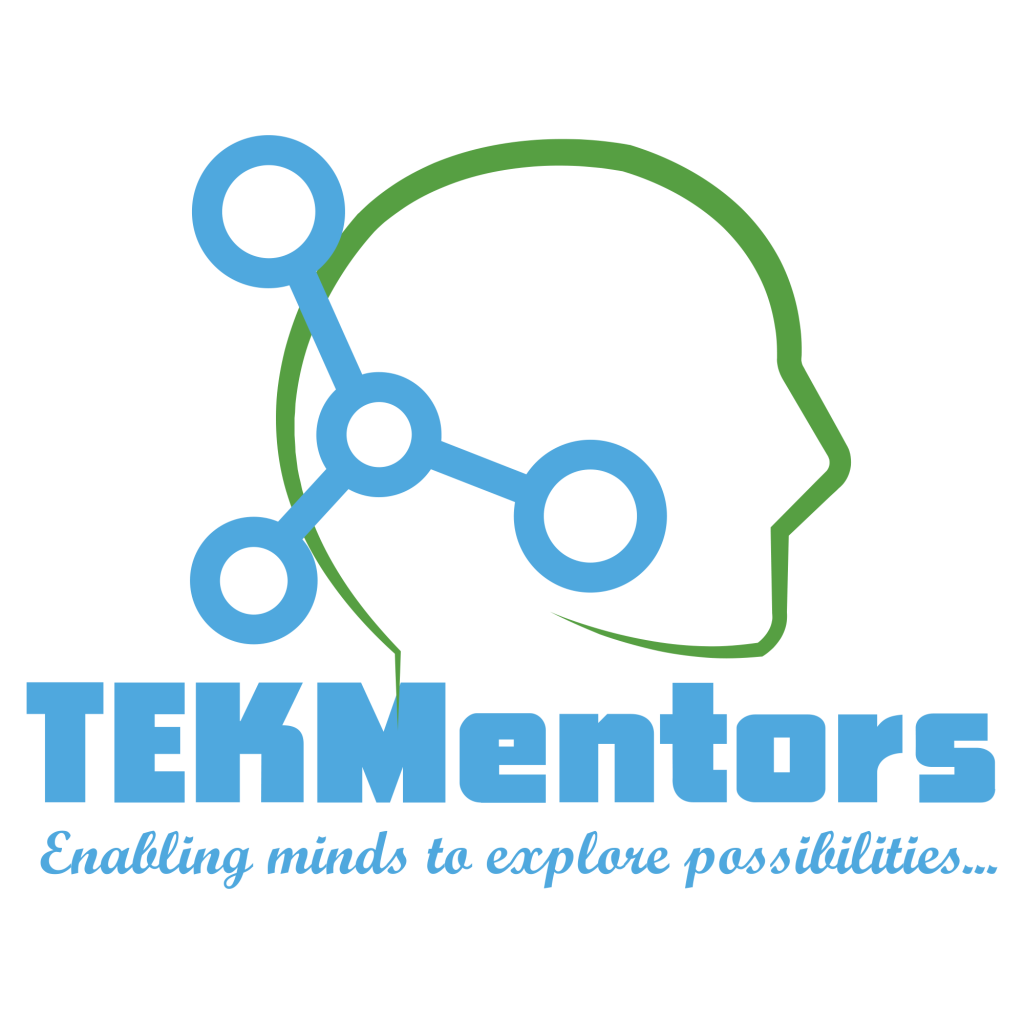Full Stack Architect
Why Trust Us?
Our Expertise & Accreditations

Program Overview: Full Stack Architecture

- Frontend: React, state management (Redux, RxJS), PWA optimization.
- Backend: Node.js, GraphQL, microservices, and API design.
- DevOps: Docker, Kubernetes, CI/CD pipelines.
- Cloud & Security: AWS/Azure architectures, OWASP Top 10 mitigation.
What Sets Our Program Apart?
- Real-World Projects: Build a production-grade app from scratch.
- Mentorship: Live code reviews by senior architects.
- Cloud-Native Focus: Learn scalability, fault tolerance, and disaster recovery.
- Outcome-Driven: 90% of graduates advance to architect/tech lead roles.
Ideal Participants: Who Should Enroll?
Frontend/Backend Developers
(3+ years) transitioning to full-stack roles.
Tech Leads
designing enterprise systems.
DevOps Engineers
expanding into architecture.
Prerequisites
- Proficiency in JavaScript/TypeScript + React/Angular/Vue.
- Experience with Node.js/Python/Java and REST/GraphQL APIs.
- Basic knowledge of SQL/NoSQL databases and Git.
Learn by Doing: Real-World Projects & Labs
Lab 1: Containerize a microservice app with Docker + Kubernetes.
Lab 2: Secure APIs using JWT, OAuth, and OWASP best practices.
Lab 3: Optimize performance with Redis caching and query tuning.
Lab 4: Architect a cloud-native app (AWS/Azure) with CI/CD pipelines.
Flexible Learning
Duration
8-16 weeks (customizable based on corporate needs).
Mode
Live Online / In-Person / Hybrid (as per your preference).
Hands-On Learning
Real-world case studies, implementation exercises, and live projects.
Skills You’ll Master: Program Outcomes
Design scalable microservices with React + Node.js/GraphQL.
Secure apps against OWASP Top 10 vulnerabilities.
Deploy fault-tolerant systems on AWS/Azure.
Optimize performance using Redis, CDNs, and DB tuning.
Lead architectural decisions for enterprise teams.
Meet Your Mentors

Arun Tiwari

Rahul Singh
Digital Transformation Expert, 20+ years in DevOps.
Focus: CI/CD, Kubernetes, and security.
Ready to Transform Your Career? Enroll Now!
An enterprise software architect designs and oversees the structure of software applications and IT systems. They ensure scalability, security, and efficiency, which are critical for businesses to build reliable and future-proof applications. Their role lies between technical and business teams, ensuring systems align with long-term organizational needs.
The course upskills teams in modern full-stack development technologies, cloud-native architecture, and security best practices, enabling them to build scalable, high-performance applications that meet business needs. The team gain hands-on experience with the latest technologies and tools, improving collaboration and building on real-world projects.
Developers with 3+ years of experience, including frontend, backend, and full-stack developers, as well as senior engineers and tech leads aiming to architect enterprise-grade applications. It’s also ideal for teams wanting to adopt modern architectural patterns.
The key topics covered within the training are:
- Frontend (React, state management).
- Backend (Node.js, GraphQL, microservices).
- Security (OWASP, JWT, OAuth).
- Deployment (Docker, Kubernetes, CI/CD).
- Performance optimization (Redis, cloud-native patterns).
- The curriculum is designed to cover both foundational and advanced concepts, ensuring participants can handle real-world challenges.
This is not a certification program. The program ensures that participants build their skills in full-stack architecture and cloud-native development that are necessary to build and support the contemporary IT systems.
The training sessions will be delivered live online with hands-on projects, live coding, and expert-led sessions. The interactive format ensures participants can ask questions, collaborate, and receive immediate feedback.
The program focuses on the below themes.
Building Foundational knowledge
- Share Objectives and Expectations with all using Competency matrix
- Self-learning around core concepts, frameworks
- Bite sized modules and hands on assignments
- Fortnightly connect sessions with batch for mentoring, assessment, feedback
- Define individual skills matrix
Learning by doing
- Review core concepts and confirm learning from previous phase
- Deep dive into individual areas followed by reinforcement activities
- Code Reviews, Assignments, Progress checks and feedbacks
- Applying Engineering practices such as TDD, pair programming,
- Emergent design while building modules
- Learning CI/CD tools and good automation practices
- SWOT Analysis of Individuals to define learning plans
- Regular coaching, mentoring and feedback
Immersive Learning
- Kickoff using Agile Chartering
- Hyper sprints – 4 sprints, 1 week each – Team defines Goals, create Backlog, Concurrent engineering, conduct Retrospectives and Reviews during each sprint
- Tools and Automation key to higher Speed and better Quality
- Teams measured on Value, Speed, Quality
- Showcase product to team and Management
The training is practical, industry-focused, and covers end-to-end development with real-world projects, live code reviews, and mentorship from experienced architects. Unlike theoretical courses, this program emphasizes hands-on learning and the application of skills of real projects.
Throughout the program we focus to:
- Provide an immersive hyper-paced learning experience to skill individuals
- No hand-offs, Software development is a collaborative process
- Teams work on Minimum viable experiments using Lean, Agile and DevOps tools and practices
- Incremental, time-boxed experimentations and learning
- Building poly skilled individuals – fundamental skills and frameworks
- Tools and Automation key to accelerate learning
The course equips participants with in-demand skills to design and deploy enterprise-grade applications, making them valuable assets for leadership and high-impact roles. The software engineers can advance to roles like Software Architect, Tech Lead, or Cloud Solutions Engineer.
Proficiency in JavaScript/TypeScript, experience with a frontend framework (React, Angular, Vue), backend knowledge (Node.js, Python, Java), and familiarity with APIs and databases. A basic understanding of version control (Git) is also recommended.
Also we need the following commitment from the Leadership.
- Commitment from the team to ensure their success towards meeting the objectives
- Dedicated teams during the core working hours
- Technology tools and infrastructure to be made available to all teams
- Continuous Management support to as required to ensure high performance from participants
- Regular connect and feedback sessions to ensure right outcomes are being focused upon
All industries, including fintech, healthcare, e-commerce, and logistics, that rely on scalable, secure, and high-performance software solutions will benefits from the course. The skills learned are transferable across industries, making it valuable for any business with digital transformation goals.
Costs vary based on course customization and the team size. Contact us for a custom quote for your teams.
No, it’s a live, interactive program with hands-on projects and expert mentorship. However, recorded sessions and resources are provided for review and reference.
Yes, we can customize the curriculum, duration, and delivery mode to meet your team’s specific needs. We can also align the training with your organization’s tech stack and business goals.
Please contact us via email/phone/website, and we’ll guide you through the enrollment process. We’ll work with you to schedule sessions and tailor the program to your team’s availability.
Visit our website or reach out to our team at xxxxx-xxxxx for a detailed brochure or a demo session. We will be happy to answer any questions and provide a full overview of the program.
Instructors and Mentors of the program
- Arun Tiwari, Senior Consultant & Trainer (B.Tech. IIT Varanasi)
Product-orientated Technology leader with around 24 years of experience in all aspects of product engineering for startups and enterprises. Experienced in designing and architecting highly scalable technology systems. - Rahul Singh, Senior Consultant & Trainer (B. Tech. IIT Varanasi)
Senior engineering leader with over 20 years of experience in IT, specializing in digital transformation programs across all stages of the software lifecycle. Adept at designing scalable cloud platforms, establishing best practices, and mentoring engineering leaders.
Success Stories: Industry Transformations
Case Study: Upskilling Teams for a global technology consulting firm
Problem Statement
The client faced challenges in meeting the demands of strategic clients for skilled product engineers.
Key issues included:
A need to transform top talent into proficient product engineers.
Lack of experiential learning programs to address skill gaps within the organization.
A focus on delivering features rather than achieving customer outcomes.
Our Interventions
We designed and implemented a Product Engineering Program tailored to the client’s needs. The program focused on:
Product Ownership: Empowering engineers to take ownership of product vision and strategy.
Product Discovery & Visioning: Teaching teams to align product development with customer needs and business goals.
Craftsmanship & Engineering Skills: Enhancing technical expertise and fostering a culture of quality and innovation.
Emergent Design: Encouraging adaptive design practices to respond to evolving requirements.
Software Engineering & Deployment Pipelines: Building robust engineering practices and efficient deployment processes.
Monitoring & Feedback Loops: Implementing systems to track performance and gather insights for continuous improvement.
Impact
The program delivered significant outcomes for the client:
Strong Value Proposition: Enhanced the firm’s ability to offer skilled product engineering services to clients.
Skilled Technologists: Enabled engineers to solve complex customer problems effectively.
Scalable Upskilling Model: Established a framework to continuously upskill teams across the organization.
This transformation not only bridged the skill gap but also shifted the focus from feature delivery to achieving meaningful customer outcomes, positioning the client as a leader in product engineering capabilities.
Case Study: DevOps Engineering
Problem Statement
Client: A UK-based financial institution specializing in Wealth, Investment, and Asset Management services.
Context:
The client faced significant challenges in their engineering processes, which were slow, manual, and inefficient. Key issues included:
Slow and Manual Processes: Engineering workflows were heavily reliant on manual interventions, leading to delays and inefficiencies.
Low Collaboration: Teams struggled with collaboration due to the lack of effective processes and tools, hindering productivity.
Poor Software Quality: Manual testing processes resulted in a higher incidence of defects and lower overall software quality.
Delayed Time-to-Market: The client’s speed to market was slower than competitors, impacting their ability to respond to market demands and customer needs.
Our Interventions
To address these challenges, we implemented a comprehensive DevOps transformation strategy, which included:
⦁ Current State Assessment: Conducted a thorough evaluation of existing processes across value streams to identify bottlenecks and areas for improvement.
⦁ Automated Delivery and Deployment Pipelines: Introduced DevOps tools and practices to automate the delivery and deployment processes, reducing manual effort and increasing efficiency.
⦁ Engineering Efficiencies: Implemented system-wide improvements to streamline workflows and enhance collaboration among teams.
Impact
The transformation yielded significant results, including:
⦁ Weekly Automated Releases: Transitioned from manual, error-prone releases to weekly automated releases, ensuring faster and more reliable delivery.
⦁ Improved Automated Testing: Increased automated test coverage from 20% to 75%, significantly enhancing software quality and reducing defects.
⦁ Halved Cycle Time: Reduced the development cycle time from 6 months to 3 months, enabling quicker responses to market changes.
⦁ In-House Capability: Built a dedicated in-house release team of 8-10 engineers, ensuring sustainable and scalable DevOps practices.
Defect Reduction: Achieved a substantial reduction in defects, from 25% to 10%, during System Integration Testing (SIT) and User Acceptance Testing (UAT) cycles.

